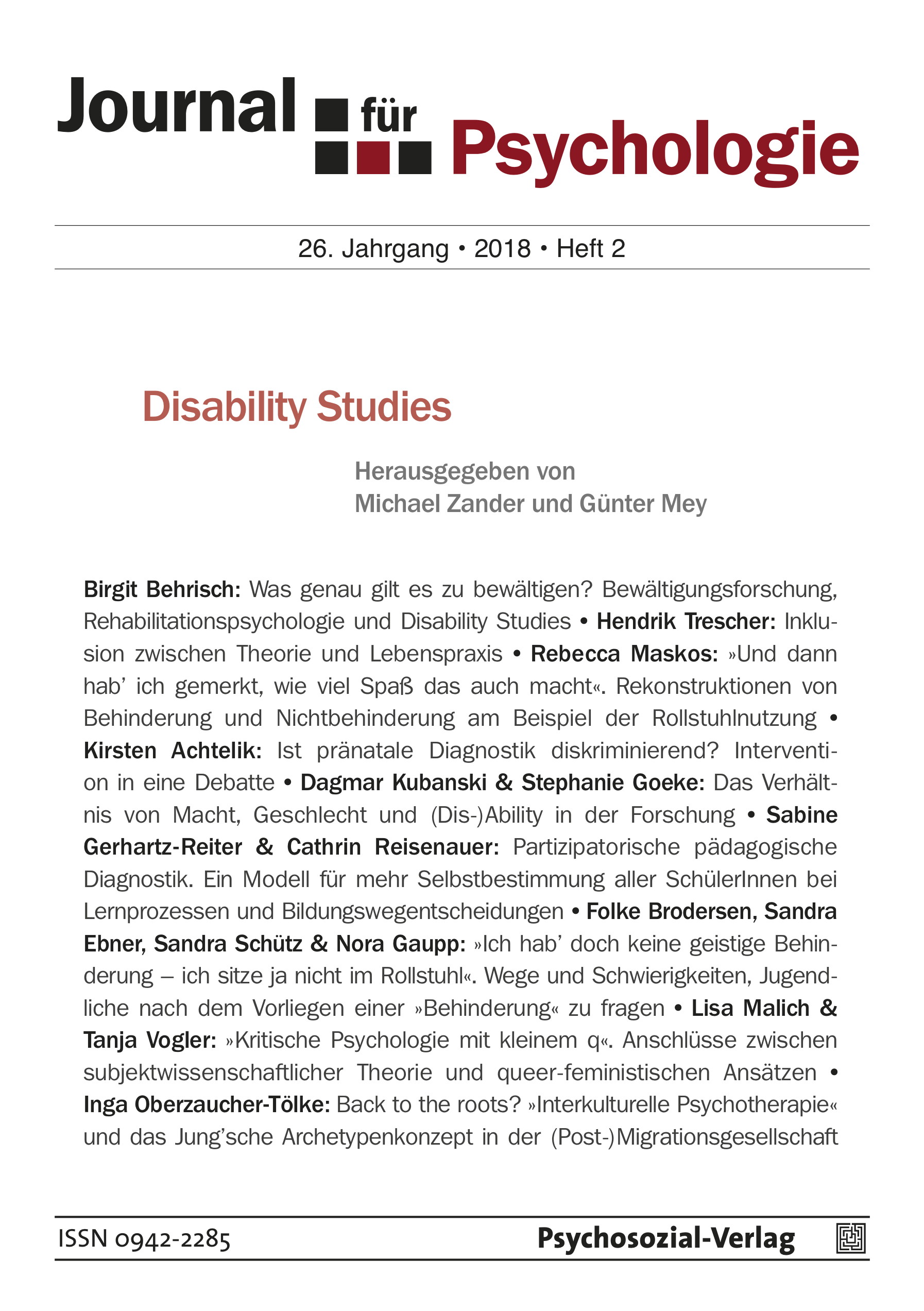»Und dann hab’ ich gemerkt, wie viel Spaß das auch macht«
DOI:
https://doi.org/10.30820/8248.04Keywords:
wheelchair, assistive device abandonment, technology, stigma, ableism, disability, social constructionAbstract
Wheelchairs are means of transportation. They have four wheels, a metal frame, a fabric seating and a seat cushion. Wheelchairs can be seen as convenient and useful. But in dominant discourses wheelchairs are overshadowed by the problematic, by fear and social alarm. Wheelchairs signal something, e.g. passivity, dependency, being trapped. In opposition to this there are discourses that promote the wheelchair as a liberating, mundane and as an embodied assistive device that (re-)enables an independent life. However, a lot of severely walking impaired people hesistate for years, until they opt for using a wheelchair. This contribution is looking at wheelchair acquisition and acceptance processes and their societal framework. It includes preliminary results of a qualitative interview study with people with walking impairments and tries to unravel discourses of disciplining and of the internalisation of stigma and ableism.Downloads
Published
2018-11-21
How to Cite
Maskos, Rebecca. 2018. “»Und Dann hab’ Ich Gemerkt, Wie Viel Spaß Das Auch Macht«”. Journal für Psychologie 26 (2):50-74. https://doi.org/10.30820/8248.04.
Issue
Section
Schwerpunkt
License
This license allows private use and unmodified distribution, but prohibits editing and commercial use (further information can be found at: https://creativecommons.org/licenses/by-nc-nd/4.0/).
The terms of the Creative Commons licence only apply to the original material. The reuse of material from other sources (marked with a reference) such as charts, illustrations, photos and text extracts may require further permission for use from the respective copyrights holder.



